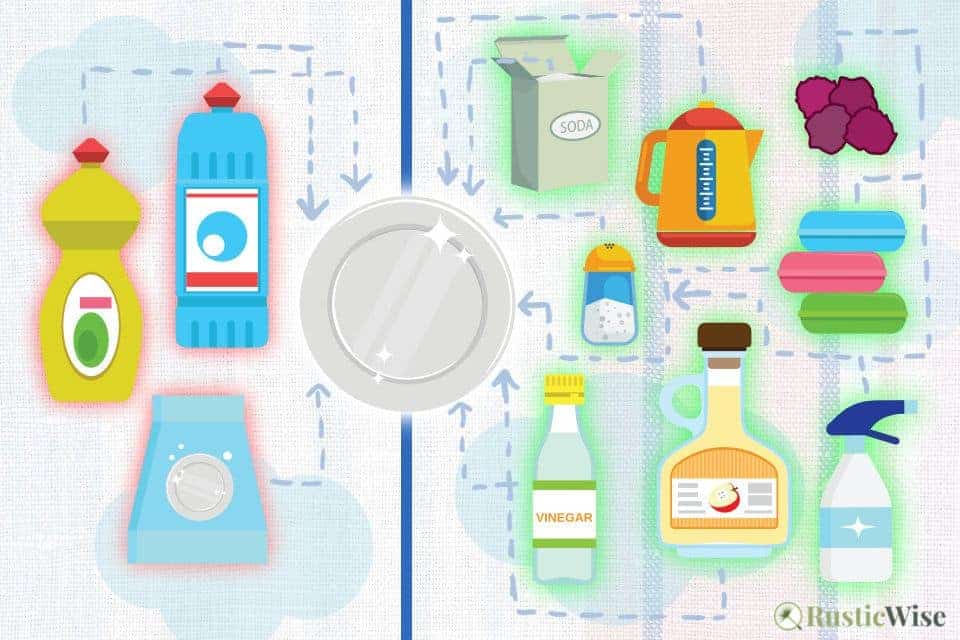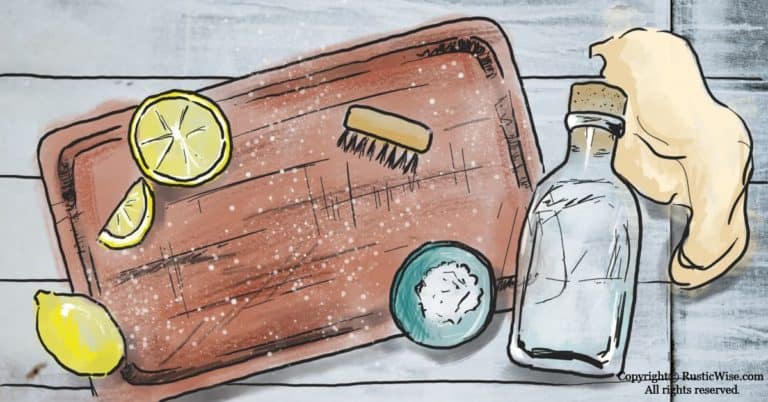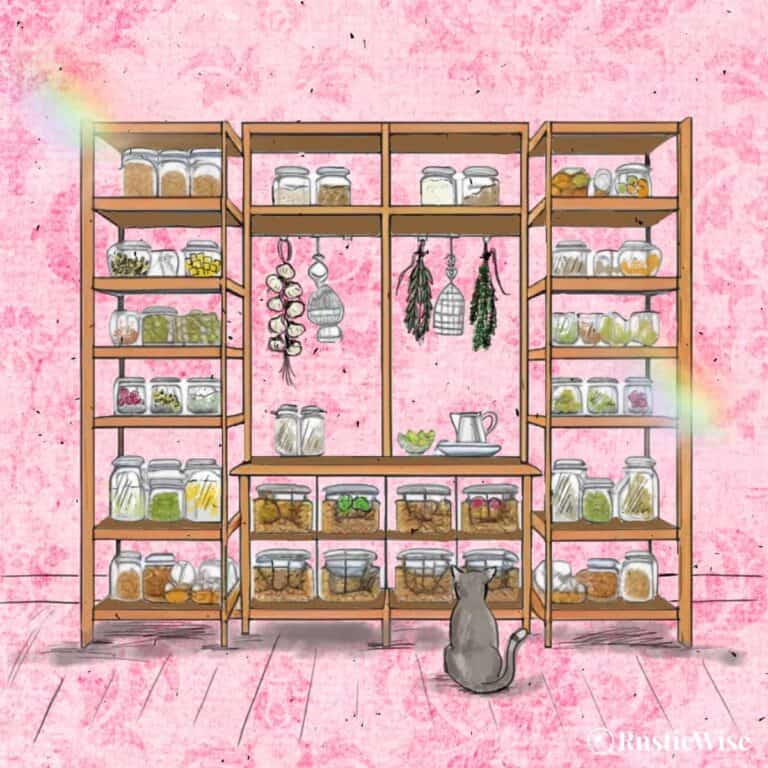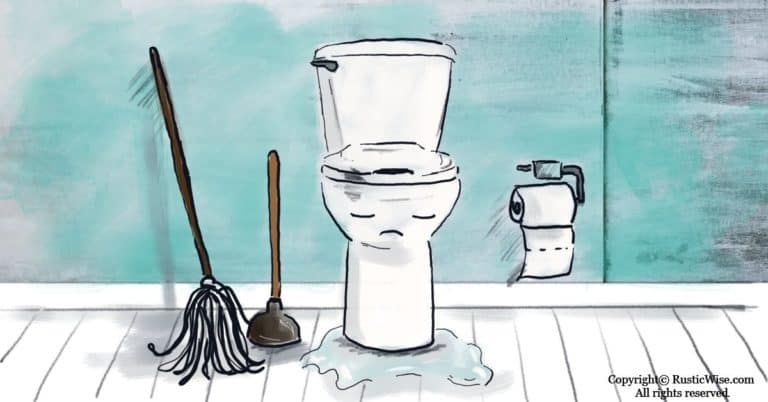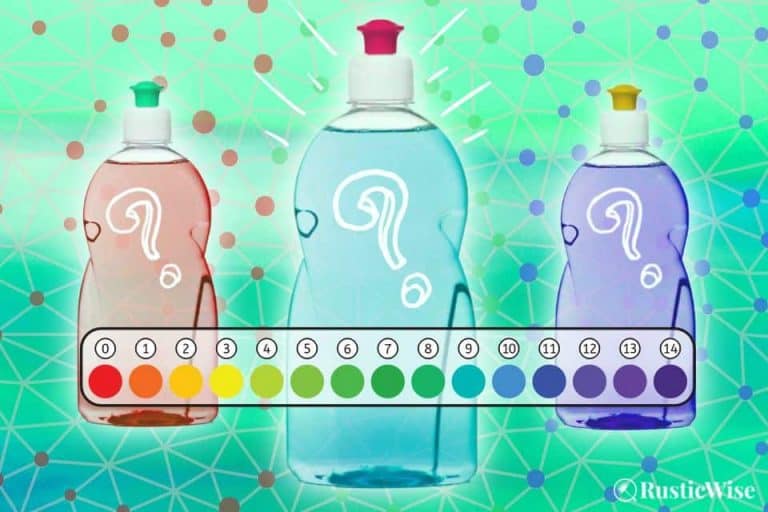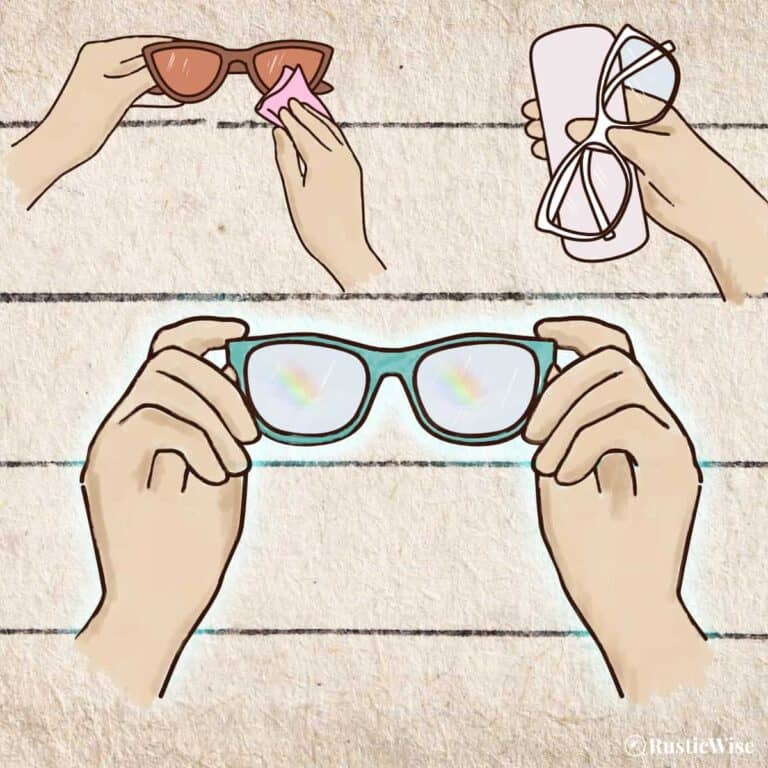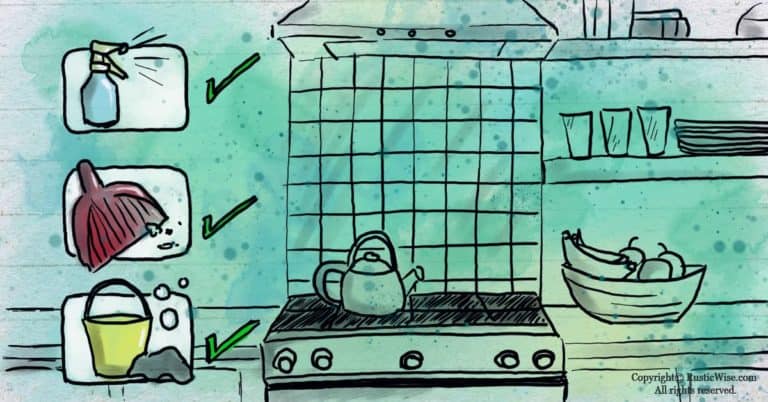13 Best Substitutes for Dish Soap and Dishwasher Detergent
Keeping track of a long list of groceries to stock up on is a never-ending task. Sometimes daily essentials like dish soap or dishwasher detergent are forgotten somewhere between the milk and the eggs. So if you suddenly find yourself with a pile of dirty dishes and an empty bottle of Dawn, you’ll need to think of a substitute for dish soap (or dishwater detergent) pronto!
We’ve rounded up a list of alternative items you can use in place of your regular liquid dish soap, or dishwasher detergent. Many of these items are ingredients you may already have in your pantry.
After trying some of these substitutes, you might decide to stick with one. Or, maybe you’ll high-tail it to the nearest store to pick up a bottle of dish soap. Either way, we’ve got you covered with 13 great dish soap alternatives (nine for handwashing plus four for dishwashers).
Things you should NOT use to wash dishes
First things first. There are some things you should NOT use as a dish soap alternative, or as a dishwasher detergent substitute. Some things, such as liquid dish soap, may bubble out of control in a dishwasher and clog your machine.
Others either are not safe or are simply ineffective.
For handwashing dishes, do NOT use:
- Dishwasher detergent: These contain harsher ingredients and are not designed for handwashing dishes, and may leave a residue that’s hard to remove. It also won’t create any of the suds that you’re used to.
- Liquid hand soap: While liquid hand soap could work if you’re in a pinch, it’s not recommended as it’s less effective at removing grease (it is less alkaline than regular dish soap). It, too, may leave a slimy residue, as it contains moisturizers intended for your skin.
- Shampoo: Similar to liquid hand soap, shampoo contains conditioning agents for your hair.
- Laundry detergent: Most commercial laundry detergents contain fabric softeners and bleach that’s not food-safe.
For an alternative dishwasher detergent, do NOT use:
- Liquid dish soap: While it may seem like the logical alternative as they’re both made for washing dishes, do NOT put any dish soap into your dishwasher. There are many online tutorials or videos saying a few drops of dish soap mixed with baking soda can be an alternative dishwater detergent—don’t try this at home! According to the American Cleaning Institute, even a few drops can create lots of suds which can overflow and damage the dishwasher (not to mention make a huge mess).¹
- Shampoo or hand soap: Similar to liquid dish soap, shampoos or liquid hand soap may damage your machine by creating lots of dishes that may clog up components or overflow.
- Laundry detergent: See above—its contains ingredients you don’t want on your dishes!
9 substitutes for dish soap (handwashing)
Don’t fret if you’re out of liquid dish soap. A quick rummage through your pantry, and you’ll find you may have just the ingredients you need to tackle that pile of dishes before you stock up on soap again.
Here are nine substitutes for liquid dish soap when handwashing those dirty dishes (in no particular order).
1) Baking soda
Baking soda, or sodium bicarbonate, is a mild abrasive alkali that’s food-safe. This is an easy substitute for dish soap as you likely have a box in your cupboard. It’s effective at cleaning oily dishes by cutting through the grease and absorbing odors.
To make your own baking soda paste, combine 1/2 cup of baking soda with 2–4 tablespoons of water. Apply the DIY paste to your dirty dishes with a dishcloth or scrubber. Clean, and follow up with a good rinse.
2) Baking soda + vinegar
To up the cleaning quotient, add a few drops of white distilled vinegar with your baking soda paste. The combination is great for scrubbing pot and pans with stubborn, stuck-on food.
You might remember making erupting volcanoes using this same formula as a kid in science class.
To use, make your baking soda paste first and apply to your dirty dishes. Then add a few drops of vinegar directly onto the dirty dishes. This ensures the chemical reaction occurs right where you want it—on the greasy stuck-on food particles!
Tip: Never combine baking soda and vinegar together in a container, as this causes a chemical reaction (fizzing), and may cause your bottle to explode. Remember that erupting volcano effect?
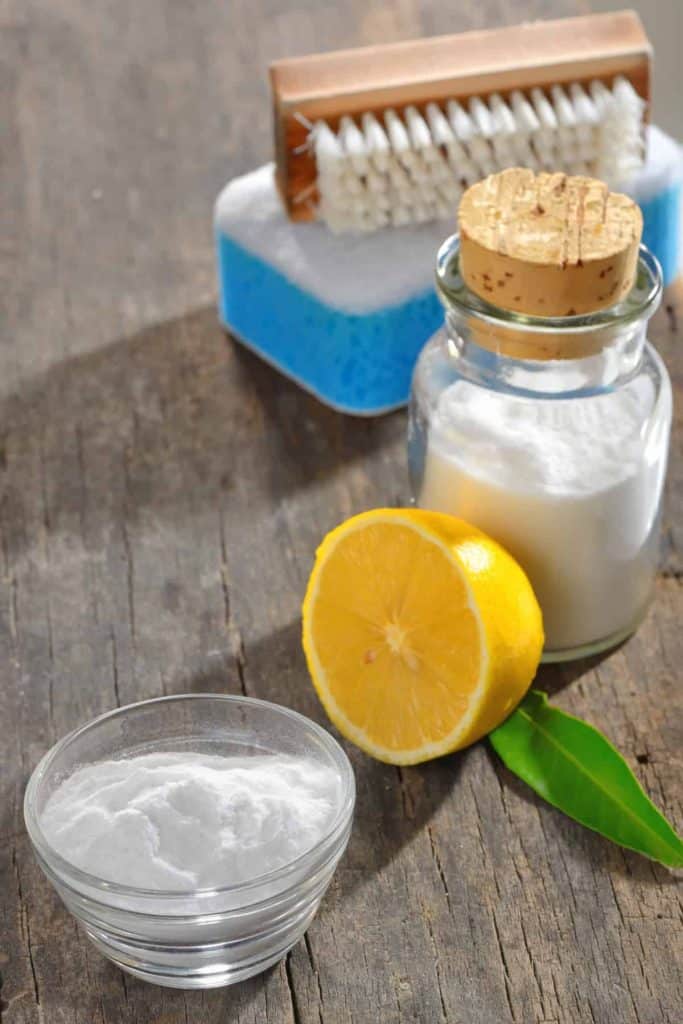
Credit: Yay Images
3) Vinegar solution
Vinegar contains acetic acid, which acts as a mild disinfectant that can kill some bacteria. Most bottles of white distilled vinegar you’ll find on the shelves contain around 5 percent acetic acid. To boost cleaning power, you can find some bottles labelled as “cleaning vinegar” which contain higher amounts of acetic acid.
Distilled white vinegar cuts through grease and cleans dishes well.
To make a vinegar solution, fill a small cleaning basin with 1 part vinegar to 1 part warm water.
Let your dishes soak for at least 30 minutes. Scrub off food particles.
Rinse well.
Warning: While vinegar is an eco-friendly cleaner, soaking in vinegar may damage aluminum or cast iron pots. Vinegar can also etch stone countertops, or other surfaces like waxed wood. Because of its acidic nature, vinegar may also harm the rubber seals or parts in your dishwasher.²
4) Castile soap
Biodegradable, mild, and food-safe, a liquid Castile soap is a great dish soap substitute. Traditionally made of olive oil, most Castile products today contain a blend of vegetable oils such as olive, coconut oil, and palm oil.
A popular Castile is Dr. Bronner’s, which sells a pure liquid Castile soap they market as an “18-in-1.”
The key to making this bottle last is to dilute the solution.
For washing dishes, dilute 1 part Castile soap to 10 parts water. Apply a small drop to your sponge. Wash dishes as usual.
5) Natural bar soap
If you have a bar of homemade soap at home, this works to wash dishes too! You won’t get big lather, but it still does the job.
Most natural bars of soap have a pH of 9 or 10 making it alkaline, similar to regular liquid dish soaps.
Since you’re using it on dishes and cups, you’ll want to keep it as mild and natural as possible. Stick with soap bars with no artificial fragrances and dyes. Good choices are an olive oil soap, or coconut oil soap.
To use, wet the bar of soap. Next lather your dishwashing cloth, sponge, or brush on the soap before cleaning your dishes.
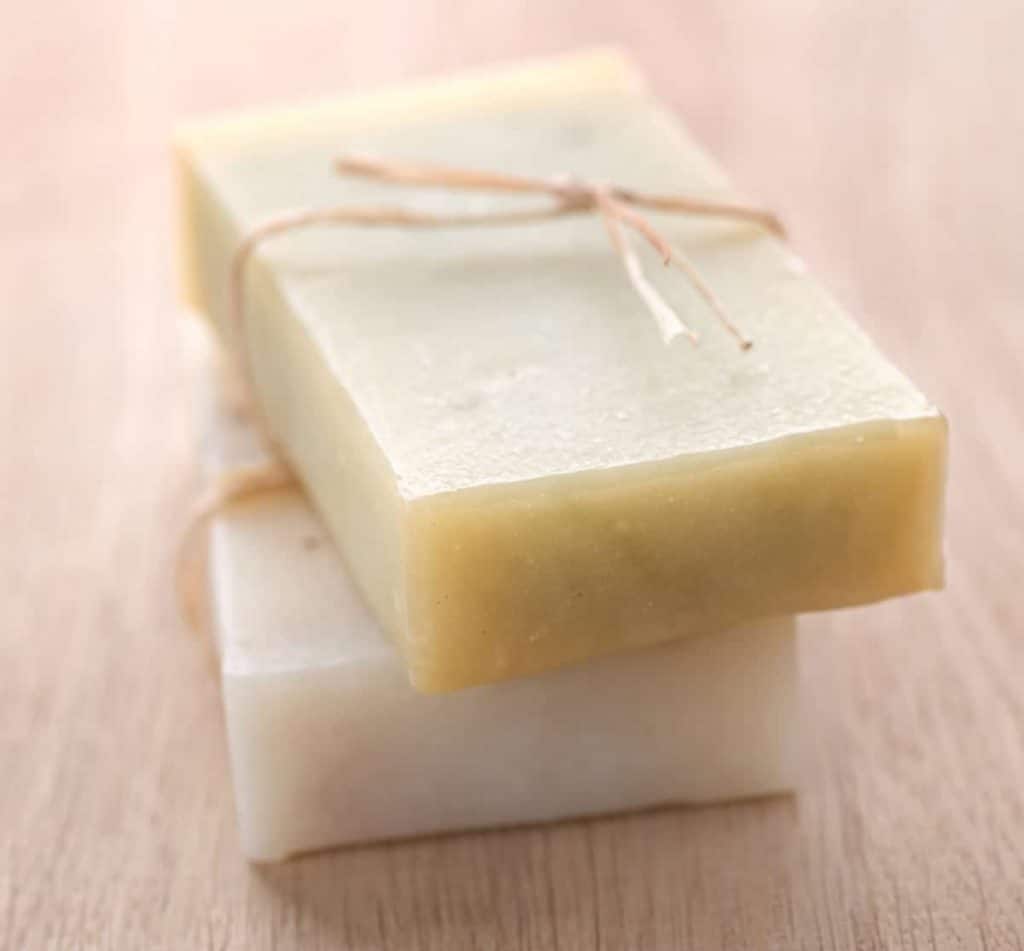
6) Salt
Plain table salt (sodium chloride) is an effective cleaning agent, as it works as a mild abrasive. You can use salt in two ways: in a salty solution, or applied directly to dirty dishes.
To make a saltwater solution:
Add 4 tablespoons of salt to roughly 1 gallon of hot water. Mix to combine. Wash your dishes as normal. Rinse well.
To use as a mild abrasive:
If you have burnt-on food residue on pots, pans, or dishes, you can sprinkle some salt directly onto the soiled area. The best salts to use are kosher salt or sea salt, which are coarser, but plain table salt also works fine.
Tip: Wear gloves as salt may dry your hands.
7) Lemon
Lemons contain citric acid, which helps cut through grease. Plus, lemons add a fresh citrus scent, which is always a bonus when cleaning!
To use lemons to wash dishes, cut a lemon in half, and simply rub onto dirty dishes.
Lemons are great at deodorizing and removing stains on cutting boards. To add more cleaning power, sprinkle some coarse sea salt before scrubbing with a lemon.
8) Soap nuts
Here’s a DIY dish soap alternative that’s as eco-friendly as it gets. Soapberries (also known as soap nuts) contain natural saponins which lather when they come in contact with warm water.
Versatile and mild, natural soap nut soap is great for plenty of things around the house: laundry, soap nut shampoo, and dishes.
To make a quick soap nut dish soap, you’ll need a glass mason jar with lid (pint-sized), and around 10 soap nuts.
- Place the soap nuts into the mason jar.
- Fill the jar with hot water leaving a couple inches from the top. Replace the lid tightly and gently swirl the soap nuts. The warm water helps release the natural saponins.
- Let the soap nuts steep for around 20 minutes.
- Strain the soap nuts and pour the soapy solution into your sink filled with clean hot water.
- Wash dishes and follow with a good rinse.
Tip: You can reuse soap nuts more than once! I use my soap nuts for laundry and shampoo up to three times.
9) Hot water soak
This is your last resort if you don’t have any of the above ingredients, or are short on time. While hot water may not remove all grease, it may kill some bacteria.
- Fill a small basin with hot water.
- Before you place your dirty dishes in the basin, try to remove as much food by scraping the surface of dishes with a spatula. This step is key, so don’t skip this step!
- Let your dirty dishes soak for 30 minutes.
- Gently use a sponge or dishcloth to scrub off any food debris.
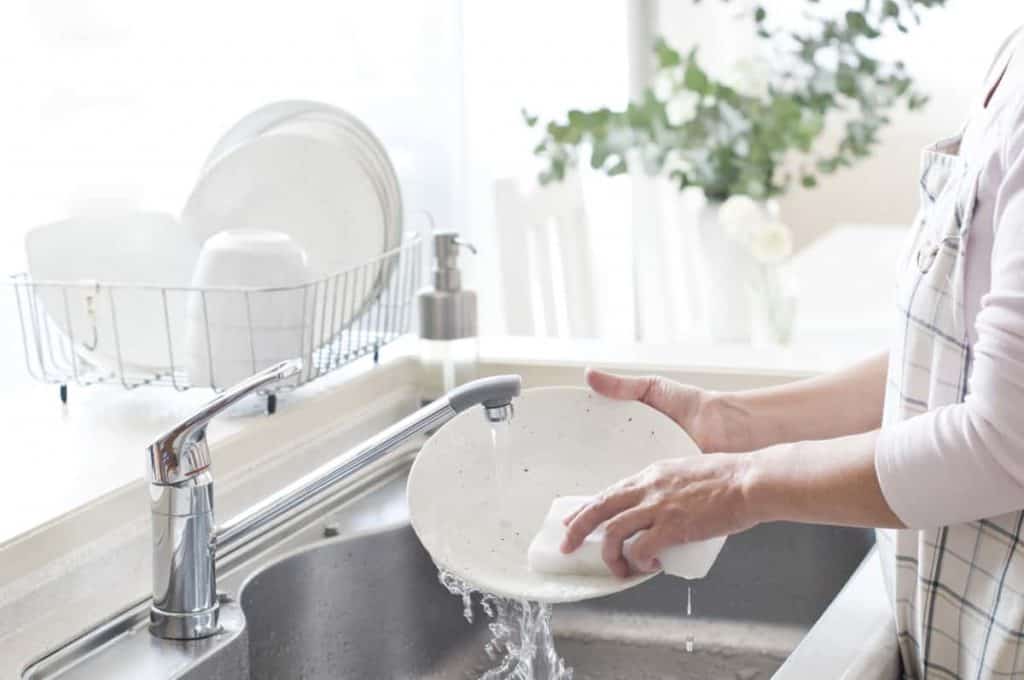
4 substitutes for dishwasher detergent
What can you use instead of dishwashing detergent? Here are a few items you might have at home. Make sure you read the section above on things you should NEVER use as soap in your dishwasher.
Unlike liquid dish soap for handwashing dishes, dishwasher soap doesn’t produce big bubbles or lather.
Alkalis such as baking soda, borax, and washing soda are soluble salts that cut through grease and get dishes clean. We’ve listed them in order from mildest to strongest.³
1) Baking soda
The mildest of the alkalis, baking soda (sodium bicarbonate) is something you probably have in your pantry and can use when you’re in a pinch.
Fill the detergent compartment of the dishwasher with roughly 1/4 cup of baking soda and run a regular cycle.
2) Borax
A moderate-strength alkali, borax (sodium tetraborate) is often used as a water softener. If you have hard water, you may find that using a bit of borax in your dishwasher can help remove water stains.
Borax is safe to use in the dishwasher.
Fill the detergent compartment of the dishwasher with roughly 1/4 cup borax and run a regular cycle.
3) Washing soda
The strongest of the three alkalis listed here, washing soda is also known as sodium carbonate.
Washing soda will blast through any stuck-on food, leaving your dishes squeaky clean.
Fill the detergent compartment of the dishwasher with roughly 1/4 cup washing soda and run a normal cycle.
Tip: While borax and washing soda are safe to use in the dishwasher, avoid inhaling the fumes. They can also be a skin or eye irritant, so handle with care.
4) DIY dishwasher soap
If you’re feeling crafty, or just hoping to make your own dishwasher detergent with no harmful chemicals, this DIY dishwasher soap is for you!
This soap combines the power of all three alkalis plus citric acid and salt for extra scrubbing power. You can find citric acid along with the canning supplies in larger grocery stores.
I found this recipe via Washington State University Extension.⁴
You’ll need:
- 1 cup washing soda
- 1 cup baking soda
- 1 cup borax
- 1/2 cup citric acid
- 1 cup coarse salt (Epsom salt, kosher salt, or rock Salt)
- An airtight container to store your mixture
- Combine all ingredients in an airtight container. Remember to label it!
- Use as you would normally use your dishwasher detergent.

References
- American Cleaning Institute, The Best Dish Soap, https://thecleaninginstitute.org/best-dishsoap/. Accessed January 2022.
- David Suzuki/Queen of Green, Does vinegar kill germs?, https://davidsuzuki.org/queen-of-green/does-vinegar-kill-germs/. Accessed January 2022.
- University of Georgia Extension, Cleaning Healthy, Cleaning Green, https://www.fcs.uga.edu/docs/Cleaning_Healthy__Green_HACE-E-73-2.pdf. Accessed January 2022.
- Washington State University Extension (Snohomish County), Green Cleaning, https://s3.wp.wsu.edu/uploads/sites/2053/2014/10/GreenCleaning-_April-29_2015.pdf. Accessed January 2022.

Author: Josh Tesolin
Josh is co-founder of RusticWise. When he’s not tinkering in the garden, or fixing something around the house, you can find him working on a vast array of random side projects.

